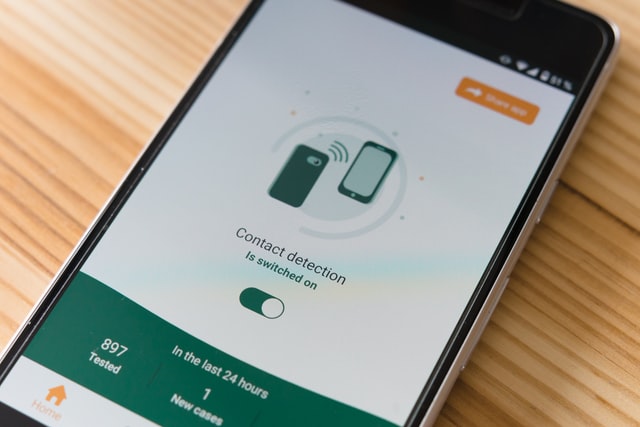CoronaMelder, the cabinet's app in the fight against the corona virus, is now available for download in the Google Play Store and App Store. The app is still being fully tested in Twente and IJsselland, where it is therefore already fully functional. In the rest of the Netherlands, the app will not be active until September 1.

The development of the CoronaMelder app was not without controversy. For the beginning of the story, we have to go back to last April. At that time, Minister Hugo de Jonge of Health, Welfare and Sport (VWS) announced that his ministry was working tooth and nail on a contact-tracing app. The minister asked citizens and experts to help think about the design and functionality of the app. Because of his call, 750 proposals were submitted to the ministry. From all these proposals, the 7 most promising proposals were selected. After much public comment from security experts, the minister acknowledged that the selection process had been "rushed and chaotic.
The first round of selection was followed by the infamous "appathon. Here, the inventors of the selected corona apps were allowed to present their idea. Based on the feedback they received, they were able to make some more adjustments. The following day, the app with the improvements was presented again.
Security experts, epidemiologists and other experts were highly critical of the process and the apps presented. RTL News discovered that one of the apps contained a security flaw. There were also concerns about citizen privacy. In the end, Minister De Jonge had to acknowledge that the appathon had not brought the desired results. Thereupon, he decided to appoint a new team to further develop the framework conditions.
In late May, Minister De Jonge released a proof-of-concept of CoronaMelder. That's when the first concept designs and parts of the app's source code were made public. Currently, the app is being fully tested in the Twente region by 1,500 people. The Rotterdam-Rijnmond region was also supposed to start using it, but was eventually replaced by the IJsselland GGD region for all of Overijssel and the Drenthe GGD region. The developers are looking at the epidemiological value, technical operation and experiences of users. Based on these findings, the minister is going to see in which areas adjustments are needed.
CoronaMelder is available for all Dutch citizens to download from the Google Play Store and App Store starting today. Please note that the app is not yet fully functional. Only in the test regions mentioned above do all functionalities of the app work. If you download and install the app now, it only records contact moments. You will not yet be notified if you may have been in contact with someone infected with the corona virus.
CoronaMelder uses the Exposure Notification API, a health platform jointly developed by Apple and Google. The app uses bluetooth technology to exchange and record unique and random codes -also called bluetooth keys or contact moments. No contact and location information is stored to ensure participants' privacy. The app looks at how long someone has been in contact with another and at what distance they are from each other. If someone is in conversation with another person for ten minutes or more in the past fourteen days at too short a distance (one and a half meters or less), the app records this as a contact moment.
If someone is not feeling well and an official test shows that he or she is infected with corona, that person can report it through CoronaMelder. His or her contact list is then forwarded to a central server. Everyone who has the app on his or her phone is sent this list. The app then checks to see if there is a match. If a code from the forwarded list appears on your personal list of contact moments, you will receive an alert. The advice is then to go into home quarantine immediately, or get checked out by a doctor.
With the app CoronaMelder, Minister De Jonge wants to prevent further spread of the corona virus. With the app, researchers can see whether there is a new outbreak locally or regionally and take appropriate measures. In addition, the app should help with the GGD's source and contact investigation.
The minister has stressed but once again that a minimum of 60 percent of the Dutch must install the app to work properly. Whether that adoption rate will actually be achieved remains to be seen. A poll by TU Delft, Maastricht University and VU Amsterdam showed that one-third of the Dutch are not eager to install the app. Also, several civil society organizations have expressed concerns about the app, including Bits of Freedom and the Rathenau Institute. The Personal Data Authority is currently studying the extent to which CoronaMelder safeguards citizens' privacy. That investigation is still ongoing.

